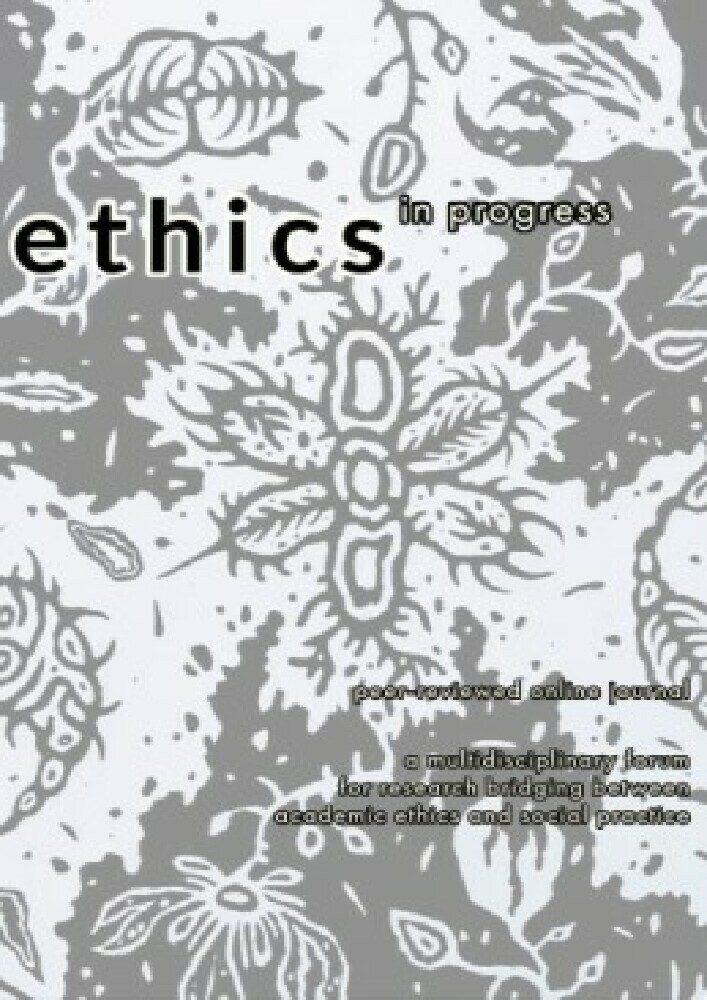Abstract
Citizens’ moral identity is not only reflected on the individual level, but also in terms of belongingness, community, and even cosmopolitanism. It is the basic demand of a community with a shared future in morality. Moral identity is closely related to moral behavior, and the study of moral identity can predict one’s moral behavior. Community is the cultural basis of citizens’ moral identity. To study citizens’ moral identity in the community can also enable one to predict people’s moral behavior in that community. At present, the construction of a community with a shared future still lacks a species moral identity generally recognized by all cultures and countries. In order to achieve that goal, we must strengthen cultural inclusion, advocate and practice species moral identity of a community with a shared future. Species moral identity is based on the existence of humankind as a species with autonomous identity, so it is necessary to establish the mechanism of cultural respect and equal discussion, and to strengthen the construction of the species moral identity. Only in that way can we accomplish the mission of establishing species moral identity. In the following paper, I will advocate for these ideas with Kant’s and Marx’ thoughts.References
Aquino K. & Mcferran B. 2011. “Moral Identity and the Experience of Moral Elevation in Response to Acts of Uncommon Goodness,” Journal of Personality and Social Psychology 100(4):703–718.
Aristotle 2003. Politics, trans. Yi Yan & Dianhua Qin. Beijing: China People’s University Press.
Arthur J. 2005. “The Re-emergence of Character Education in British Education Policy,” British Journal of Educational Studies 53(3):239–254.
Bloemraad I., Korteweg A., & Yurdakul G. 2008. “Citizenship and Immigration: Multiculturalism, Asimilation, and Challenge to the Nation-state,” Annual Review of Sociology 34:153–179.
Brettell C. B. & Reed-Danahay D. 2011. Civic Engagements: The Citizenship Practices of Indian and Vietnamese Immigrants. Palo Alto, CA: Stanford University Press.
Brown H. 2011. “Refugees, Rights, and Race: How Legal Status Shapes Liberian Immigrants’ Relationship with the State,” Social Problems 58(1):144–163.
Byron C. 2016. „Essence and Alienation: Marx’ Theory of Human Nature,” Science & Society 80(3):375–394.
Ebert K. & Okamoto D. G. 2013. “Social Citizenship, Integration, and Collective Action: Immigrant Civic Engagement in the United States,” Social Forces 91(4):1267–1292.
Hardy S. A. & Carlo G. 2005. “Identity as a Source of Moral Motivation,” Human Development 48:232–256.
He Lai 2020. “Ethical Dimension of the Community of Common Destiny,” Guangming Daily, May 25, 2020.
Hirsch A. L. & Bell N. 2017. “The Right to Have Rights as a Right to Enter: Addressing a Lacuna in the International Refugee Protection Regime,” Human Rights Review 18:417–437.
Horton R. 2020. “Covid Is Not a Pandemic,” The Lancet 396:874 (of 26 September 2020).
Jia F. 2016. Moral Identity from Cross-and Bi-cultural Perspectives [doctoral dissertation]. Wilfrid Laurier University, Canada.
Jia F. & Krettenauer T. 2017. “Recognizing Moral Identity As a Cultural Construct,” Frontier in Psychology 8:412.
Kant I. 1998. Religion within the Boundaries of Mere Reason and Other Writings, trans. and ed. by A. Wood & G. di Giovanni, with Introdution by R. M. Adams. Cambridge, UK: Cambridge University Press.
Marx K. 1970. Critique of Hegel’s Philosophy of Right, trans. A. Jolin & J. O’Malley. Cambridge – London – New York – New Rochelle – Melbourne – Sydney: Cambridge University Press.
Marx K. 2002. Manifesto of the Communist Party, in Selections (Anthologies) of Marx and Engels, Vol. III. Beijing: People’s Publishing House.
Marx K. 2017. Manuscript of Economics and Philosophy in 1844, in Selections (Anthologies) of Marx and Engels, Vol. XLII. Beijing: People’s Publishing House.
Miller J. G. 2007. “Cultural Psychology of Moral Development,” in S. Kitayama & D. Cohen (Eds.), Handbook of Cultural Psychology (pp. 477–499). New York: Guilford Press.
Moran K. 2011. “The Ethical Community as Ground of Moral Action: An Interpretation of the Highest Good,” in O. Thorndike (Ed.), Rethinking Kant, Vol. III (pp. 78–99). New Castle: Cambridge Scholars Publishing.
Norenzayan A. & Heine S. J. 2005. “Psychological Universals: What Are They and How Can We Know?,” Psychological Bulletin 131:763–781.
Nussbaum M. 2010. “Kant and Cosmopolitanism,” in G. W. Brown & D. Held (Eds.), The Cosmopolitan Reader (pp. 27–44). Cambridge: Polity Press.
Patrick J. 1999. The Concept of Citizenship in Education for Democracy. USA: Education Resources Information Center.
Pfändtner W. 2014. “Religiously (Un)musical, Musically (Un)religious,” Diskus. The Journal of the British Association for the Study of Religions 16(1):3–11.
van der Linden H. 1988. Kantian Ethics and Socialism. Indianapolis – Cambridge: Hackett.
Vink M. P. & Bauböck R. 2013. “Citizenship Configurations: Analysing the Multiple Purposes of Citizenship Regimes in Europe,” Contemporary European Studies 11:621–648.
Wartenberg T. E. 1982. “ ‘Species-Being’ and ‘Human Nature’ in Marx,” Human Studies 5:77–95.
Xi Jinping 2017. Secure a Decisive Victory in Building a Moderately Prosperous Society in All Aspects and Strive for the Great Success of Socialism with Chinese Characteristics for a New Era. Beijing: People’s Publishing House.
Yang Shaogang 2010. “Cultural Origin of Moral Values and Moral Education,” Journal of Ideological and Theoretical Education 1:21–31.
Zhou Guowen 2008. Historical Origin of Citizens’ Ethical Perception. Beijing: Central Compilation & Translation Press.




